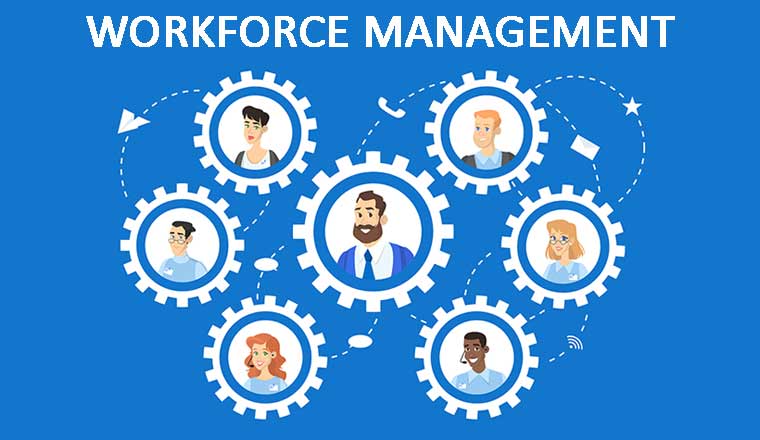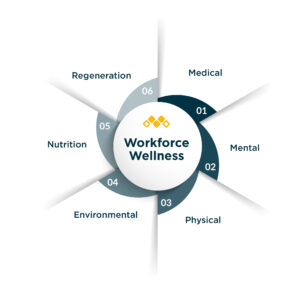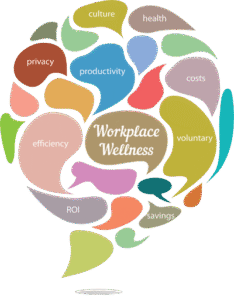Work-Life Blend: Navigating Parenthood in Today’s Workforce
6 min read
The recent revelation from celebrity power couple Parineeti Chopra and Raghav Chadha about their caffeine-fueled nights juggling new baby duties and demanding careers has struck a chord with working parents globally. Their candid admission – “Baby duties + work duties = fuelled by coffee” – highlights a universal truth: navigating parenthood in today’s dynamic workforce requires immense dedication, strategic planning, and, often, robust working parent support strategies. This insight from the spotlight underscores a broader conversation about how businesses and societies can better empower parents to thrive both at home and in their professional lives, ensuring productivity without sacrificing well-being.
The Evolving Landscape of Parental Responsibilities in the Modern Workforce
In an era where dual-income households are increasingly common and traditional gender roles continue to blur, the demands on modern parents are unprecedented. The notion of a strict work-life balance has gradually given way to a more fluid “work-life blend,” where professional and personal spheres frequently overlap. The challenges range from managing childcare logistics and adapting to unpredictable schedules to addressing the emotional and physical toll of constant demands.
For organizations, understanding and responding to these shifts is not merely a matter of corporate social responsibility but a critical component of talent retention, attraction, and overall productivity. Companies that fail to implement effective working parent support strategies risk losing valuable employees, experiencing higher turnover rates, and seeing a dip in morale. The Parineeti-Raghav anecdote serves as a high-profile reminder that even individuals with significant resources face the intrinsic struggle of integrating new family responsibilities with professional commitments, emphasizing the pervasive need for systemic support.
Key Developments in Working Parent Support Strategies
The recognition of these challenges has spurred significant developments in how employers approach parental support. Progressive organizations are moving beyond traditional maternity leave, adopting comprehensive strategies that address the full spectrum of parental needs:
- Flexible Work Models: The pandemic accelerated the adoption of remote and hybrid work models, offering parents unprecedented flexibility. Staggered hours, compressed workweeks, and asynchronous communication tools allow parents to manage school drop-offs, doctor appointments, and family time more effectively. A recent study by XYZ Research Group indicated that companies offering flexible work saw a 30% increase in parental employee retention over five years.
- Extended and Inclusive Parental Leave: Many companies are now offering extended paid parental leave that is gender-neutral, recognizing the importance of both parents being present in a child’s early life. Some progressive policies also include leave for adoption, foster care, and even fertility treatments, reflecting a more holistic view of family building.
- Childcare Assistance: Direct childcare support, whether through on-site facilities, subsidized daycare, or partnerships with external childcare providers, is emerging as a crucial benefit. While still not widespread, companies offering such assistance report higher employee satisfaction and reduced absenteeism among parents.
- Well-being and Mental Health Resources: Recognizing the psychological strain of balancing work and family, many employers are integrating specialized mental health support, counseling services, and stress management programs tailored for parents. These initiatives aim to foster a culture where parents feel supported and encouraged to seek help when needed.
- Parental Support Networks and Mentorship: Internal employee resource groups (ERGs) for parents provide invaluable peer support, shared experiences, and mentorship opportunities. These networks help new parents navigate their roles within the company, offering practical advice and a sense of community.
Impact Analysis: Productivity, Well-being, and Career Progression
The implementation of robust working parent support strategies yields multifaceted benefits. For individuals, particularly new parents, adequate support can significantly reduce stress and burnout, contributing to better mental and physical health. This, in turn, allows them to be more engaged and productive in their roles. When parents feel valued and supported by their employers, their loyalty and commitment to the organization increase, fostering a positive work environment.
Conversely, a lack of support can lead to significant career setbacks for parents, especially mothers, who often bear a disproportionate share of childcare responsibilities. It can result in career breaks, opting for part-time roles that limit advancement, or even leaving the workforce entirely. This represents a substantial loss of talent and experience for businesses.
Special Considerations for International Students and Working Parents
For international students who are also working parents, or those aspiring to become parents while pursuing their careers abroad, these challenges are often compounded. They frequently lack the extended family networks that many domestic parents rely on for childcare and emotional support. Navigating a new country’s cultural norms, language barriers, and complex immigration regulations adds layers of stress to an already demanding situation.
Visa restrictions can impose limitations on work hours for student parents or their spouses, directly impacting financial stability and the ability to afford quality childcare. Understanding the local support systems, governmental benefits (if any), and employer-provided working parent support strategies becomes not just beneficial, but absolutely critical for their success and well-being. The financial burden of childcare, often significantly higher than in their home countries, can also be a major barrier, making employer subsidies or flexible arrangements particularly impactful for this demographic. International students must proactively research and understand the resources available in their host country and from potential employers to make informed decisions about their academic and professional journeys while managing family life.
Expert Insights and Practical Tips
Experts in workforce management emphasize that effective working parent support strategies require a multi-pronged approach, involving both organizational commitment and individual proactive measures.
For Employers: Building a Parent-Inclusive Workplace
Forward-thinking organizations should:
- Formalize Flexible Work Policies: Clearly define and communicate options for remote work, flexible hours, and compressed workweeks. Ensure managers are trained to implement these policies equitably.
- Invest in Parental Leave: Offer competitive, gender-neutral paid parental leave that exceeds statutory minimums. This signals a true commitment to employees’ family lives.
- Facilitate Childcare Solutions: Explore partnerships with local daycare centers, offer childcare subsidies, or provide resources for parents seeking reliable care.
- Prioritize Mental Health: Integrate parental-specific mental health resources into employee assistance programs. Foster an open culture where discussing work-life challenges is normalized.
- Create Support Networks: Sponsor parental ERGs and mentorship programs where experienced working parents can guide new ones.
- Evaluate Performance Holistically: Focus on output and results rather than hours spent in the office. This allows parents the autonomy to manage their time effectively.
For Working Parents: Thriving Amidst the Blend
Individual parents can adopt several strategies to navigate their roles:
- Communicate Openly: Discuss your needs and availability with your employer and team. Transparency helps manage expectations and facilitates support.
- Set Clear Boundaries: Define work hours and protect family time. This might involve turning off notifications or having a dedicated workspace separate from family areas.
- Leverage Support Systems: Utilize employer benefits, seek help from family or friends, and connect with other working parents for shared experiences and practical advice.
- Prioritize Self-Care: Even small moments of self-care can make a big difference. Remember, you cannot pour from an empty cup.
- Embrace Imperfection: Parenthood and career are messy. It’s okay if not everything is perfect all the time. Focus on what truly matters.
For International Students: Strategic Planning for Parenthood Abroad
For international students balancing studies, work, and family:
- Research Visa Implications: Thoroughly understand how your visa category (and that of your spouse, if applicable) impacts work eligibility, childcare subsidies, and access to local services. This is a critical step in planning.
- Explore Employer Benefits: When seeking employment, inquire about specific working parent support strategies, leave policies, and flexibility options. Prioritize employers known for family-friendly practices.
- Build a Community: Actively seek out local parent groups, university support services, and cultural organizations to build a new support network.
- Understand Local Regulations: Familiarize yourself with the childcare options, costs, and any governmental support available in your host country.
Looking Ahead: The Future of Parental Support in the Workforce
The journey of Parineeti Chopra and Raghav Chadha, fueled by coffee and determination, mirrors the experiences of countless working parents striving to achieve professional success while nurturing their families. As societal expectations and economic realities continue to evolve, the demand for comprehensive and empathetic working parent support strategies will only intensify. The future of work must be one where parenthood is viewed not as a career impediment but as a valuable life experience that fosters resilience, empathy, and exceptional organizational skills.
Organizations that proactively invest in these strategies will not only cultivate a more loyal and productive workforce but also position themselves as leaders in the modern employment landscape, attracting top talent who seek to balance ambitious careers with fulfilling family lives. The ongoing dialogue and continuous adaptation of policies will be key to creating truly inclusive and supportive workplaces for all parents.
Reach out to us for personalized consultation based on your specific requirements.



